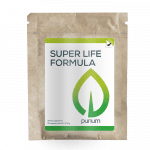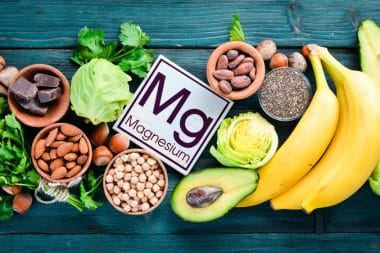A nutrient is a substance that provides nourishment essential for growth and maintenance of life. Nutrient density is a term used to describe the amount of beneficial nutrients in a food in proportion to energy, content, and weight per calorie. Other words that you may hear interchangeable with nutrient density are nutrient rich, or micronutrient dense. Adding nutrient dense foods to your diet can help you have a healthier way of being.
Nutrient dense foods increase the amount of nutrition you get per calorie of food. In simple terms you don’t benefit from 600 calories of fast food French fries as you would benefit from 600 calories of kale.Â
If you are a person who focuses your food on eating a variety of nutrient dense foods that are available you are a Nutritarian, focusing mostly on unprocessed whole foods.Â
A nutrient dense diet could also be called an anti-inflammatory diet which helps prevent chronic diseases such as heart disease, high blood pressure, diabetes, or obesity.Â
It is easier to find these nutrient dense foods then you would think, and there are a lot of them. So the main focus is to find foods that are highest in essential nutrients while being lowest in calories. This does not mean you have to break the pocket book or start working overtime just to afford these healthy foods. Â
Nutrient Dense Foods
Sea Food
Not all fish are nutrient dense. But there are a few that are. One of them being salmon. Salmon is easy to find, tastes good, and easy to prepare simply. It is high in omega-3 fatty acids, has high protein, magnesium, potassium, selenium, and B vitamins. Another fish that can be easily found and affordable is canned white tuna. Affordable, and has a good amount of omega-3 fatty acids as well, canned tuna can be an easy thing to add into your diet. Sardines are another fish that are nutrient dense. They usually are eaten whole, so you get all the nutrients from the organs of the fish as well. Shellfish such as clams, oysters, scallops and mussels are nutrient dense fish. Not everything from the ocean though has to be fish. Seaweed is nutrient dense, usually being used in sushi it is high in iodine which helps with thyroid function.Â
Kale
The best leafy green for nutrient density is kale, though spinach and cabbage can be good options as well. Kale though has vitamins, minerals, fiber, antioxidants, and bioactive compounds. It is high in vitamin C, A, and K1. Â
Garlic
Garlic is another food you can add to some dishes to help boost the nutrient density. Garlic has cancer fighting properties, and is high in vitamin C, B1 and B6. Â
Potatoes
Some people have reported living on a potato only diet and being very healthy when doing so. This is because potatoes have almost all the nutrients you need to maintain life. They have potassium, magnesium, iron, copper, manganese, and vitamin C and most B vitamins. Sweet potatoes are also a healthy option in being a complex carbohydrate as well as having some good vitamins and minerals.Â
Dark Chocolate
Dark chocolate that is high in cocoa is one of the healthiest foods you can pick. It has fiber, iron, magnesium, copper and manganese. Dark chocolate is heart healthy as well. Â
Eggs
Egg yolks are a nutrient dense food as well. The yolk of an egg is what holds all the nutrients, so you may want to add the yolk back into your egg white omelets so you can benefit from all the nutrients the egg has to offer. As well as being one of the best sources of protein.Â
And More
Liver, blueberries, legumes such as beans, peas, lentils, soybeans, and peanuts, quinoa, chickpeas, and plain Greek yogurt are also good nutrient dense foods to add into your diet. Other foods include broccoli, acai berry, asparagus, beets, bone broth, pumpkin, green beans, artichokes, black beans, and seeds including pumpkin, sunflower, chia or flax. Â
All of these foods can be found rather easily. The goal is to try to stick to whole foods. If you are having trouble with how to incorporate them in your meals, start with eating them raw, and then working them into daily meals from there. Don’t feel overwhelmed, you can start small by starting to incorporate one or two of these before trying to add them all.Â
Do you know your Ideal Weight range?
Try a variety though, since each food has its own benefits. Buy organically when you can though all produce does not have to be bought organically. Avoid processed foods while adding in these foods will help you have a healthier diet, as well as may help you maintain a healthier weight. Processed foods can include processed meats like salami, instant noodles, sugary beverages, potato chips, artificial sweeteners, fast foods, and candy bars.Â
Adding more nutrient dense foods into your diet will allow you to get more nutrients per calorie. Making your calorie intake be more beneficial to your health and well being then filling up on calories of something that isn’t doing your body any good. Â
READ MORE:Â A Quick Start Guide To Nuts And Seeds
What foods are highest in nutrients and lowest in calories? Find out about Nutrient Dense Foods Here! #HealthStatus
Adding more nutrient dense foods into your diet will allow you to get more nutrients per calorie.
Sources:
https://www.medicalnewstoday.com/articles/324713#quinoa
https://www.healthline.com/nutrition/11-most-nutrient-dense-foods-on-the-planet#The-bottom-line
https://www.myfooddata.com/articles/most-nutrient-dense-foods.php
https://www.realsimple.com/food-recipes/recipe-collections-favorites/healthy-meals/most-nutrient-dense-foods
https://azheartfoundation.org/the-11-most-nutrient-dense-foods-on-the-planet/
https://draxe.com/nutrition/nutrient-dense-foods/









Reply